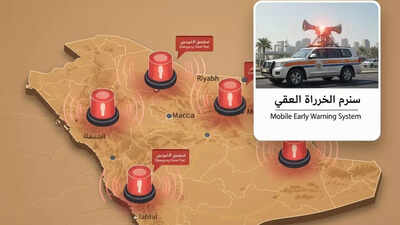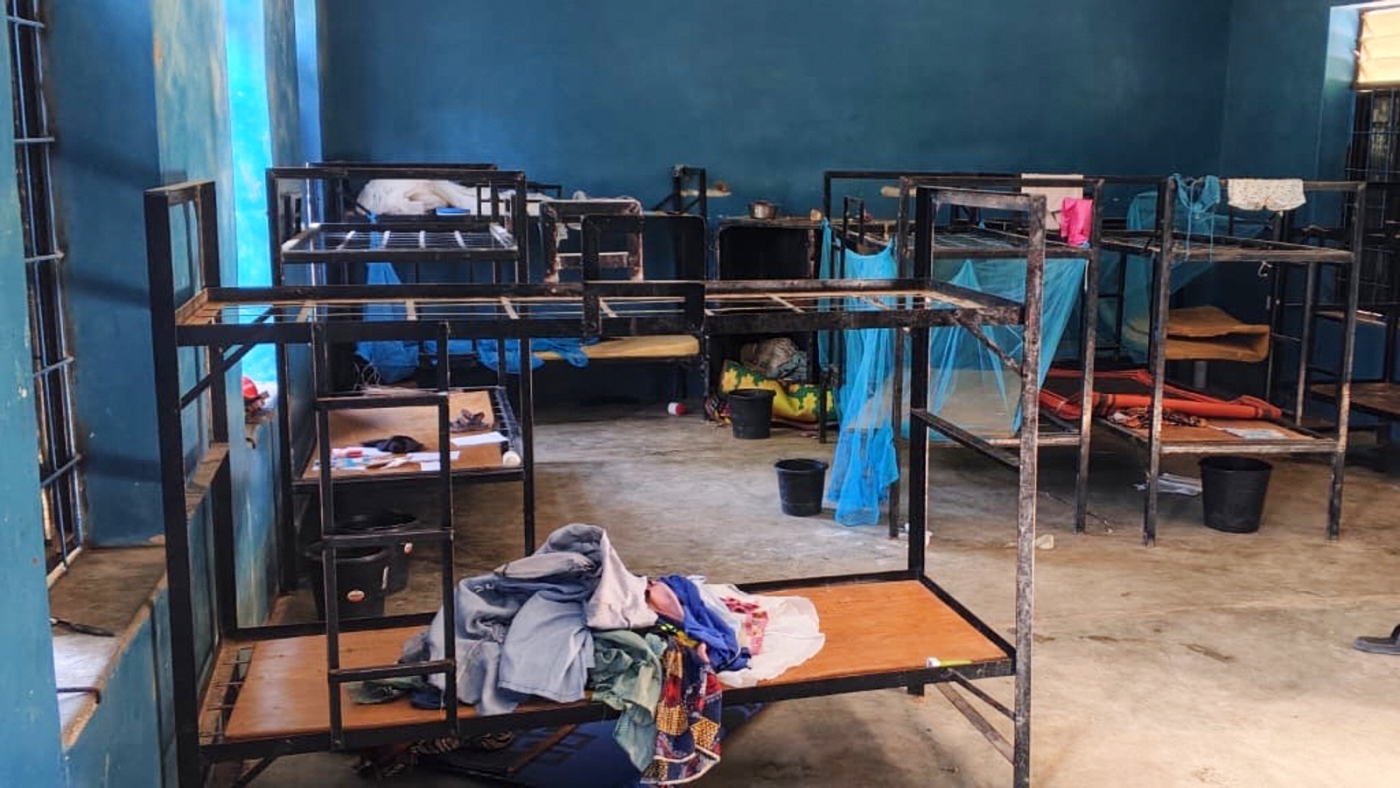
Saudi tests nationwide sirens and mobile emergency alerts Monday / AI-generated illustration
Saudi Civil Defence will run a planned test of its emergency-warning systems on Monday, November 3, 2025. Mobile phones across the Kingdom will receive test alerts and fixed sirens will sound in selected areas of Riyadh (Diriyah, Al-Kharj, Al-Dilam), Tabuk (all governorates) and Makkah (Jeddah and Thuwal).
The exercise begins at 1:00 PM and finishes after the siren at 1:15 PM.
KSA emergency siren test
Get ready for a sound check! In a crucial move to ensure public safety and emergency preparedness, the General Directorate of Civil Defense is rolling out a comprehensive test of its fixed siren and early warning systems. This isn't a drill to ignore, it’s a major step to boost community awareness and ensure that residents know exactly how to react to official alerts during a real emergency.The goal is simple: to confirm the national alert systems are operating at peak efficiency and ready to notify millions of people instantly. By testing both mobile alerts and traditional sirens simultaneously, the Civil Defense is ensuring maximum coverage and reinforcing the readiness of the entire warning network across the Kingdom.
Key regions involved in the warning check
This periodic testing isn't confined to one small area; it's a geographically significant exercise targeting some of the most populated regions in the Kingdom.
The tests will utilize the National Early Warning Platform through the cellular broadcast service, sending specific advisory messages directly to mobile phones, alongside the wailing of the fixed sirens.The test focuses on key cities and surrounding governorates, ensuring that preparedness is a regional priority. The areas involved in this specific drill include:
- Riyadh Region: Covering the capital city of Riyadh, along with the governorates of Al-Diriyah, Al-Kharj, and Al-Dilam.
- Mecca Region: Focusing on the significant population centers of Jeddah and Thul.
- Tabuk Region: The entire region will participate in the readiness check.
What to expect and when
To manage the logistics and ensure an accurate evaluation of the system, the Civil Defense has established a precise, three-phase timeline for the test.
The sequence ensures that the modern mobile broadcast alerts are tested before the traditional siren network.If you are in one of the targeted regions, here is the exact schedule for what you can expect on the day of the test:
| Time (Local) | Alert Type | Action/Tone Description |
| 1:00 PM | Phase 1: Early Warning Platform | Broadcast of advisory messages sent to mobile phones using a new distinctive "behavior tone." |
| 1:10 PM | Phase 2: National Alarm Tone | Transmission of the official National Alarm Tone via mobile broadcast. |
| 1:15 PM | Phase 3: Fixed Sirens Test | The traditional, high-powered Fixed Sirens will be activated and tested across the designated cities. |
These routine and comprehensive trials, using both cell broadcast technology and classic sirens, are the Civil Defense’s way of verifying the readiness and resilience of the system. The clear and simple schedule is designed to keep residents informed, making the whole process easy to understand and ensuring that when a real emergency strikes, everyone knows exactly what to listen for and what to do.
Conclusion
As Saudi Arabia continues strengthening its national emergency-response systems, Monday’s drill is a reminder that preparedness is a shared responsibility. Taking a moment to recognise the alert tones and understand how they work today could make a real difference in any future emergency. Once the test concludes, life carries on as usual, but with the public a little more informed, and the Kingdom a step safer.

 1 month ago
15
1 month ago
15










 English (US) ·
English (US) ·